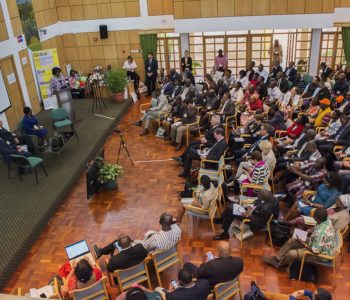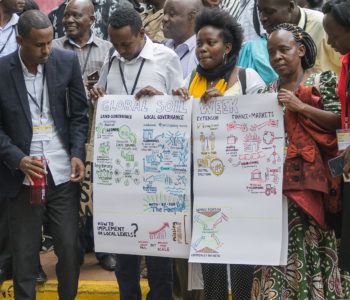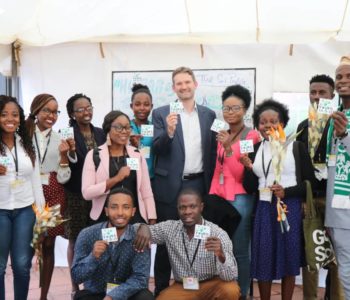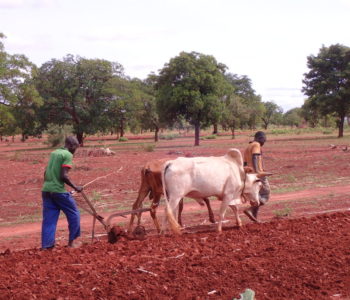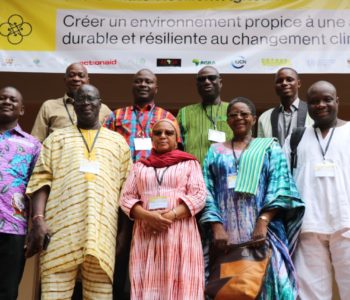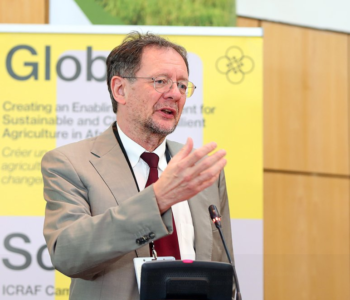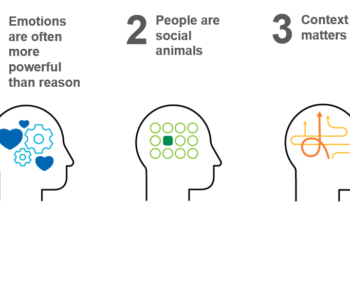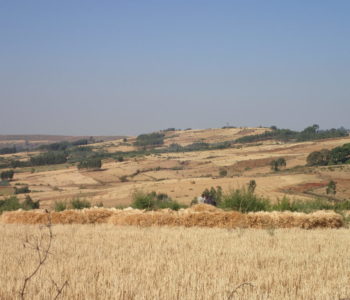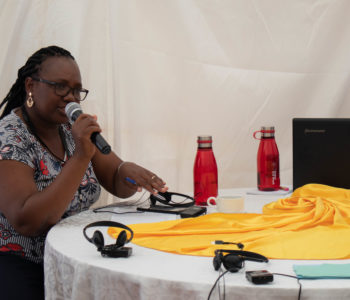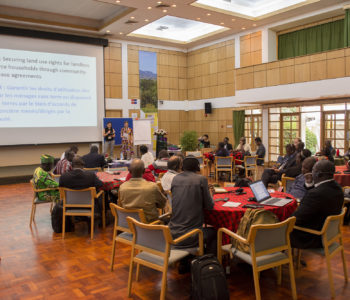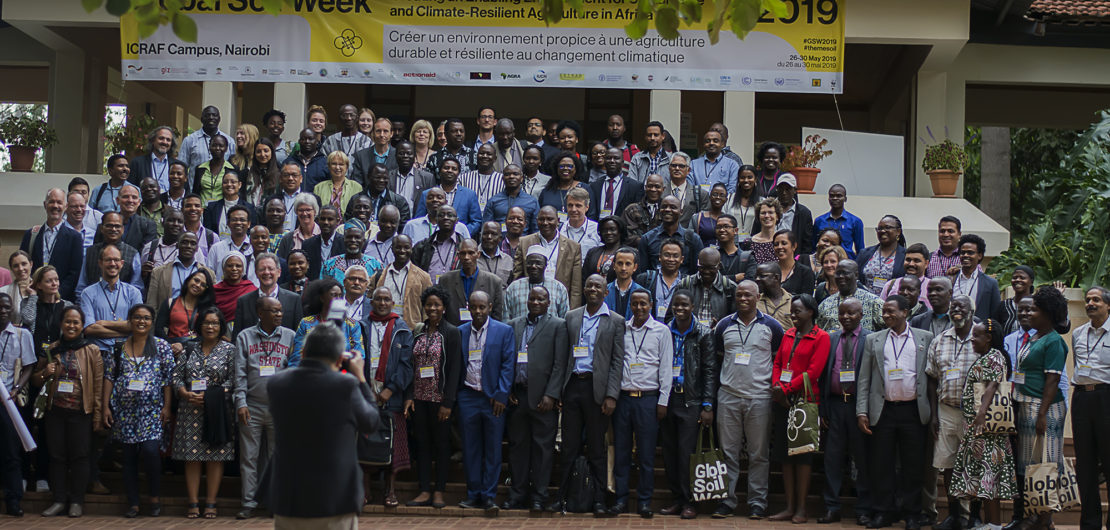
Global Soil Week 2019: Re-engineering the Will for Local…
Global Soil Week 2019: Re-engineering the Will for Local Actions
A blog post by Atula Owade
It is the fifth edition of the Global Soil Week 2019 and the conversations are lively.
The several months of planning for the 2019 event by TMG Think Tank for Sustainability are showing results as experts from all over the world gathered on the evening of 26th May, 2019 at the Trademark Hotel Nairobi to commence this anticipated conference with a launch dinner. It is the evening of 26th May, 2019.
The 2019 Global Soil Week is said to take a bottom-up learning approach on ‘Creating an Enabling Environment for Sustainable and Climate Resilient Agriculture in Africa’. The event welcomes participants from 12 African countries, India, Germany and America, alongside the co-hosting countries of Burkina Faso, Benin, Ethiopia, Madagascar, and the host country, Kenya.
Anna Kramer, the Project Coordinator for TMG Research welcomes everyone to the conference with a breakdown of how the event will be conducted over the next four days at the ICRAF Campus. The 2019 event is grouped into two distinct segments with the first two days focusing on the Technical Segment and the last two days focusing on the High-Level Segment.
Technical Segment Day 1
Day 1 started with an opening plenary moderated by Alice Kaudia and Alexander Müller. This session highlighted the objectives of this 2019 event and set the agenda through the introduction of the narrative of the Global Soil Week. In the opening hour, a simulation of a case discussion was conducted through an interactive dialogue between a case presenter, Saydou Koudougou, from Burkina Faso and Serah Kirangu from TMG.
The simulation was immediately followed by five simultaneous workshops with different cases. The implementers such as soil experts, agricultural engineers, farmers, agronomists, government officers, and social workers were grouped into five different parallel workshops to discuss cases based on the conference thematic focus.
The intention from the workshops was for lessons from these cases to be analyzed by the participants as means to identify the relevant enabling and hindering factors for creating an enabling environment for sustainable and climate resilient agriculture in Africa.
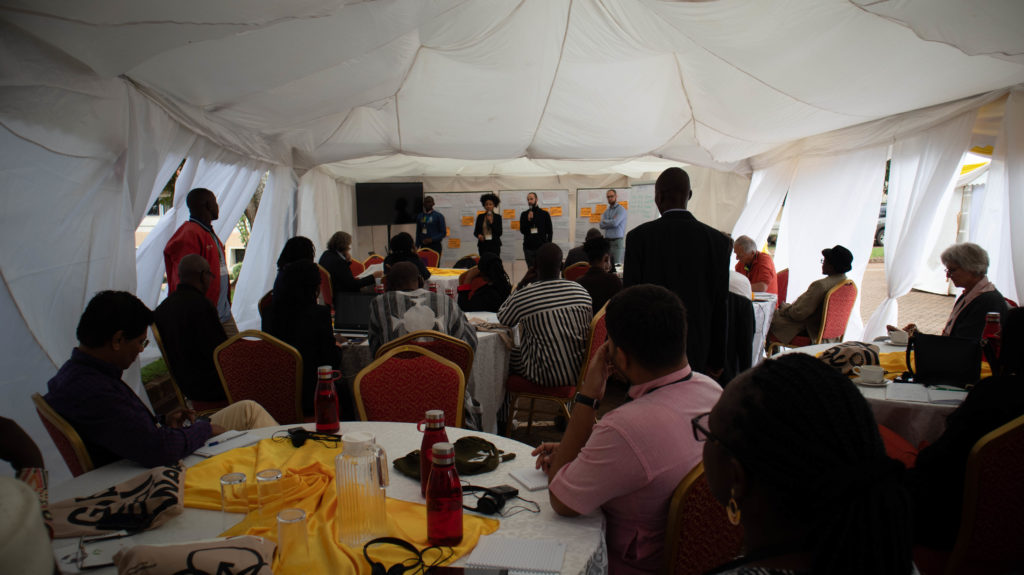
Technical Segment Day 2
The second day of the event capitalized on experience sharing and also charted the way forward for creating an enabling environment for sustainable and climate resilient agriculture. The different cases and topics were grouped into four dimensions including land governance, extension services, local governance and cooperation as well as finance and markets. The target for the day ensured effective facilitation of deliberations, clustering of lessons from the cases and analysis of cases around the four dimensions. These dimensions are viewed as critical aspects of an enabling environment and represent prominent challenges for sustainable and climate resilient agriculture. The technical segment of the conference ended with a plenary and preparation dinner for the high-level segment of the conference.

The high-level segment
The third day of the conference was entirely dedicated to the four peer review workshops around the same dimensions. TMG has a sustainability think tank, believes that sustainable land management needs a multi-faceted approach. The belief is that experts need not work in silos for in such a way they are blind to different, equally important viewpoints, hence, encouraging multi-disciplinary discussions.
Following the peer review workshops, senior experts and lead discussants from the diverse workshop dimensions gathered to further reviewed the lessons learned per dimension and commonalities, differences and complementary approaches were discussed to constitute day four discussion within the Global Soil Week Lab.
The final day of the event took the approach of collating all the discussions and peer reviews made during the previous days. These reviews were concluded with a call to action for creating an enabling the environment for sustainable and climate resilient agriculture in Africa.
To close the Global Soil Week 2019, a lab event was organized with high-level decision makers to solidify commitment to actions and implementation. The event ended with a concluding plenary where lessons and actionable outcomes and agenda were shared with the participants for practical application on the ground.
